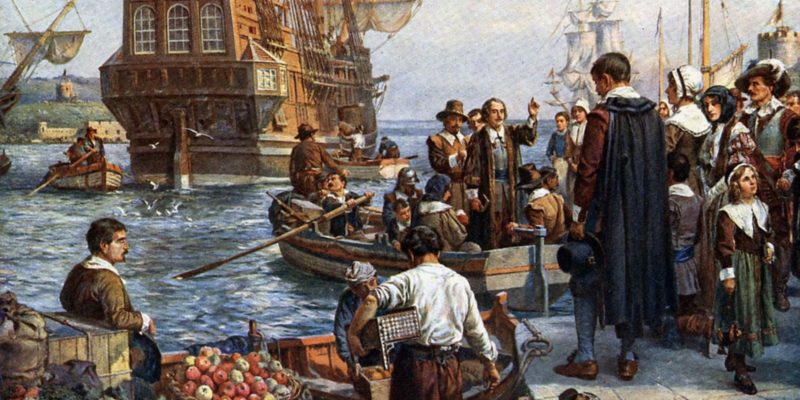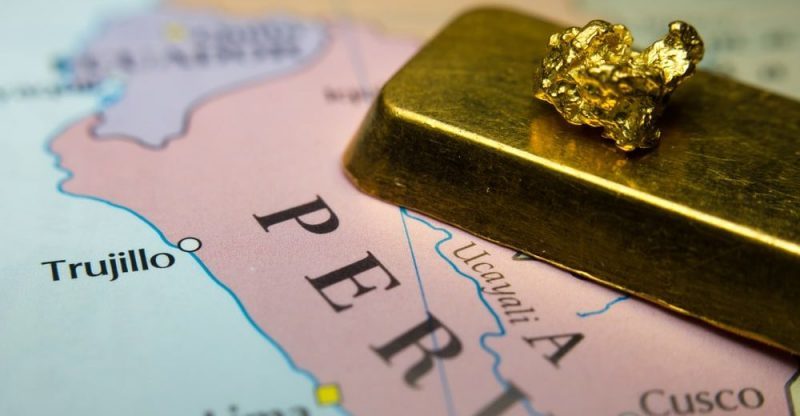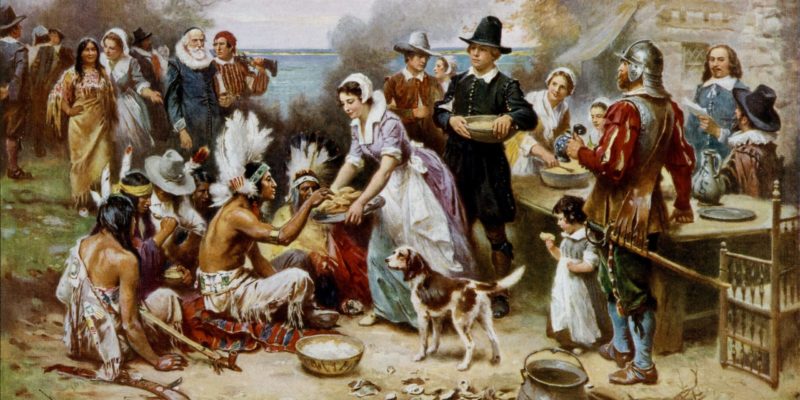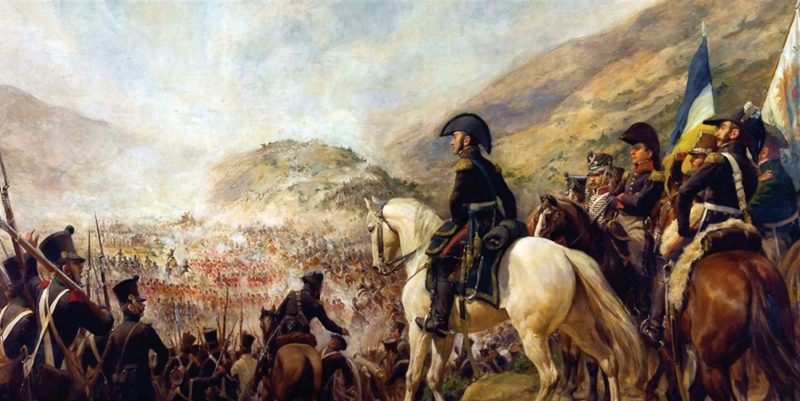We explain what colonial trade was and why it was so important. Also, what are its general characteristics and consequences.
What is colonial trade?
Colonial trade is understood to be the dynamics of exchange of goods and resources that is established between a hegemonic power center or metropolis, and its dependent settlements or colonies. This occurs within the framework of a colonial economy.
At the time of European Imperialism, the great powers of Europe (especially Spain , Portugal, Great Britain, Germany and France ) settled on the territory of other countries. Thus they imposed a political, social, economic and even cultural system that favored the relationship of dependency with respect to the metropolis.
The trade colonial consisted mainly of extraction of natural resources of the region settled in favor of the colonizer. It used to be accompanied by rules and restrictions that always favored the colonizing state. In addition, it was the scene of numerous ethnic exchanges.
There was a whole culture of mediators, since the colonized territories were always considered sources of easy and immediate wealth , both for colonizers and for others who wanted to take advantage of the situation. Such is the case, for example, of the famous pirates of the Caribbean.
Although this is mainly about what happened in America , colonial trade also developed in Africa and Asia .
The american colonies

Spain, Great Britain, and a few other countries in Europe were some of the world's greatest colonizers.
An entire continent was divided between them in the 16th century: America.
The following century was characterized by the inevitable war of conquest, faced with the resistance of the American aboriginal nations to the imperial expansionist project.
This is how the American colonies were born , both in North America and in Hispanic America . There the conquerors founded cities with the names of their European cities.
In addition, they imposed a caste system (especially in what would become Latin America ) that differentiated citizens based on their race. Whites were the ruling elite, Native Americans were serfdom, and black Africans, brought in under monstrous conditions to do forced labor, were slaves .
What was the colonial trade?
In the case of the colonies of America, those belonging to the kingdom of Spain were the majority and covered more territory: from the territory of the current southern states of the United States to the Río de la Plata and its surroundings.
Despite this commercial advantage in the extraction of American natural resources and their shipment to Europe, Spain did not sustain its power in the long term. In fact, the Spanish colonization had a marked religious spirit.
Simultaneously, in Europe a counter-reformist spirit reigned that tried to reverse the effects of the rise of the Protestant church . For this reason, much of the gold mined from the Americas was invested in churches and temples in Spain and other Catholic nations.
Spanish monopoly

Colonial trade had a markedly extractive spirit . This means that the natural resources coveted in Europe were exploited on American soil . Among them were:
- Minerals: gold, silver , iron .
- Textiles and food: tobacco, cotton , corn , cocoa, etc.
- Other products such as pearls, exotic animals, etc.
The Spanish crown dictated all trade measures with its colonies. In addition, it sent its ambassadors to positions of power in the American territories and maintained military control.
The laws dictated by the metropolis assured Spain a commercial monopoly with America . This prohibition to trade with other European nations or even with other colonies, prevented them from receiving better income.
There was a system of galleons and merchant ships in continuous travel between both continents , guarded by warships, in charge of transporting and preventing smuggling.
Why was colonial trade important?
Colonial trade clearly favored Europe . In many cases, like the British one, it provided European nations with the surplus of raw materials and capital necessary to start the Industrial Revolution .When this revolution definitively changed the world economy , the colonizing states were generally in advantageous positions, even after losing their colonies. On the contrary, most of the colonies were devastated by looting.
Consequences of colonial trade
 The main consequences for the colonies of this economic arrangement were negative. A backwardness was observed in economic, political and social matters . Furthermore, there was little return on his efforts and his riches.
The main consequences for the colonies of this economic arrangement were negative. A backwardness was observed in economic, political and social matters . Furthermore, there was little return on his efforts and his riches.On the other hand, laws dictated from the hegemonic center of colonial power, ignored the needs of the population of the other continent . Thus, a series of unfair arrangements were established that were the true ones responsible for lighting the independence fuse.
When Napoleonic troops defeated Ferdinand VII, the white American elites saw an opportunity to proclaim their sovereignty . Thus began the American Independence Wars.
Piracy
The response of international interests in the face of the Spanish monopoly of the American colonial trade, was the formation of illegal military units . They were vessels without a national flag that were known as corsairs.These corsairs had a privateering license, that is, legal permission from other governments to use their territories and assault the Spanish trade routes. They kidnapped, robbed and murdered without any evidence of who had done it.
This illicit activity was also practiced by real pirates , that is, by thieves and mercenaries who served no one, except for their own interests. They ravaged American coastal cities, European trade routes, and sold captured resources to the highest bidder.
Colonial taxes
 The tax system with which Spain controlled American trade consisted of various types of taxes, such as:
The tax system with which Spain controlled American trade consisted of various types of taxes, such as:
- Tithe. Tribute that the Spanish crown charged to the agricultural work in the colonies, from which the money for the religious tasks with which the crown imposed cultural and social dominion came.
- Fifth real. Tax with which the extraction of gold and other minerals was assessed, allocating a fifth of the total to the crown.
- Almojarifazgo. Tax on the movement of goods in the customs of America and Spain.
- Alcabala. Tax on the sale of real estate in the colonies.
Liberation of colonial trade
Towards the 18th century, the Spanish crown (now in charge of the Hasburgs) initiated the liberation of colonial trade. Its rules were relaxed , for example allowing the disembarkation of merchandise in other ports in addition to Seville, which until then was the exclusive port for this trade.However, the fleet and galleon system that prevailed during the previous century was maintained. However, since 1748 a rigorous vessel registration system was implemented to prevent smuggling, known as the Registration Vessel System.
End of American colonial society
 The Hispanic colonies in America came to an end throughout the 19th century . However, it was not a peaceful process, but rather these territories went through a series of military conflicts that were the American Independence Wars.
The Hispanic colonies in America came to an end throughout the 19th century . However, it was not a peaceful process, but rather these territories went through a series of military conflicts that were the American Independence Wars.The first countries to proclaim their independence were Mexico , Argentina, and Venezuela . The last were Cuba and Puerto Rico , fallen under US rule in the Spanish-American War.
Decolonization
This is the name of the gradual process by which the European colonies in the world recovered their independence . In many cases, it led to the rise of new republics of what is now called the Third World .Many of them, unfortunately, suffered the consequences of colonialism and joined modernity with difficulties, delays and in little condition to compete commercially with their former masters.
The above content published at Collaborative Research Group is for informational and educational purposes only and has been developed by referring reliable sources and recommendations from technology experts. We do not have any contact with official entities nor do we intend to replace the information that they emit.
MA student of the TransAtlantic Masters program at UNC-Chapel Hill. Political Science with a focus on European Studies. Expressed ideas are open to revision. He not only covers Technical articles but also has skills in the fields of SEO, graphics, web development and coding. .
Leave a reply
Your email address will not be published. Required fields are marked *Recent post

Sport: What Is It, Types, Risks, Features, Characteristics and Examples

Dogs: Emergence, Features, Characteristics, Feeding and Breeds

Story: Definition, Elements, Structure, Features and Characteristics

